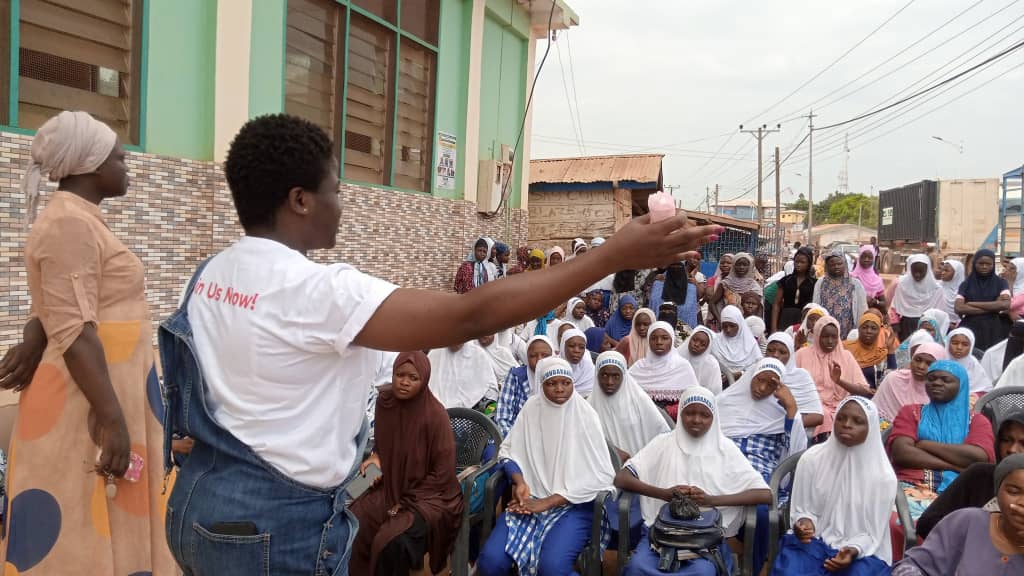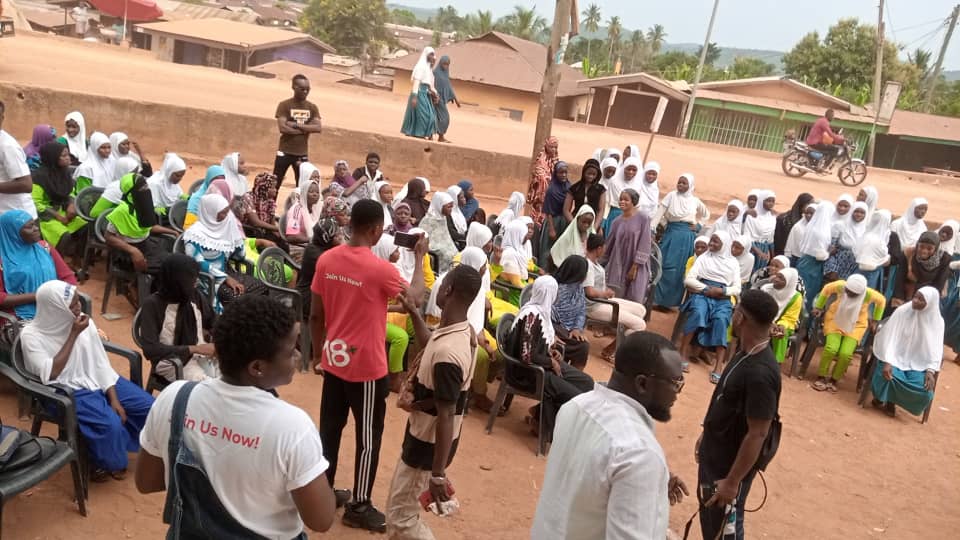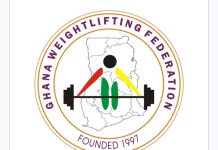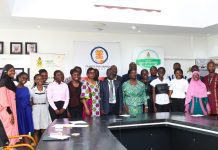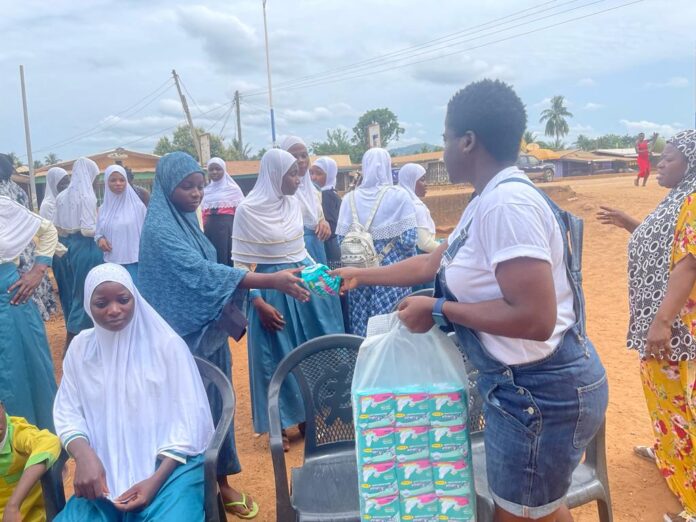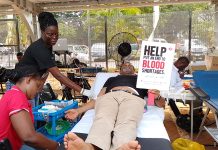As part of efforts to intensify reproductive health awareness among adolescent girls, 18PLUS4NDC a network of social democrats with a mission to educate and orient young people about the principles and values of Social Democracy on Saturday 28th May 2022 marked this year’s and 2022 Menstrual Hygiene Day (MHD).
There was a major social media campaign that drove this year’s awareness which included the main hashtags for MHD 2022 #MHDay2022 and #WeAreCommitted.
Menstrual Hygiene Day (MHD, MH Day in short) is an annual awareness day on May 28 to highlight the importance of good menstrual hygiene management (MHM) at a global level.
It was initiated by the German-based NGO WASH United in 2013 and observed for the first time in 2014.
In developing countries, women’s choices of menstrual hygiene materials are often limited by the costs, availability, and social norms.
Adequate sanitation facilities and access to feminine hygiene products are important but opening discussion making adequate education for women and girls is of equal importance.
It is in this direction that 18PLUS4NDC used the occasion to distribute sanitary pads to some young girls in the Hohoe Zongo community of the Volta region.
During a media interaction with journalists, the President of the Association, Bridget Bonnie revealed that her network educated the young girls on proper menstrual management and taught them how to properly fix and dispose of their sanitary pads.
“Menstrual Hygiene Day is an annual awareness day celebrated globally to highlight the importance of good menstrual hygiene management to break taboos, stigma, and myths surrounding menstruation.
Research has found that not having access to menstrual hygiene management products can keep girls home from school during their period each month.
Menstrual Hygiene Day is an occasion for publicizing information in the media, including social media, and engaging decision-makers in policy dialogue.
The day aims to advocate for the integration of menstrual hygiene management into global, national, and local policies and programs,” she stated.
She further pleaded with the government of Ghana to help make sanitary pads affordable and also admonished the Ministry of Gender, Children and Social protection to intensify and enhance Menstrual Education in various schools and communities, especially rural communities.
“Unfortunately, we’ve had instances where some girls do not attend class lessons during their periods due to the high cost of sanitary pads and also for fear of staining their uniforms,” Bridget Bonnie.
